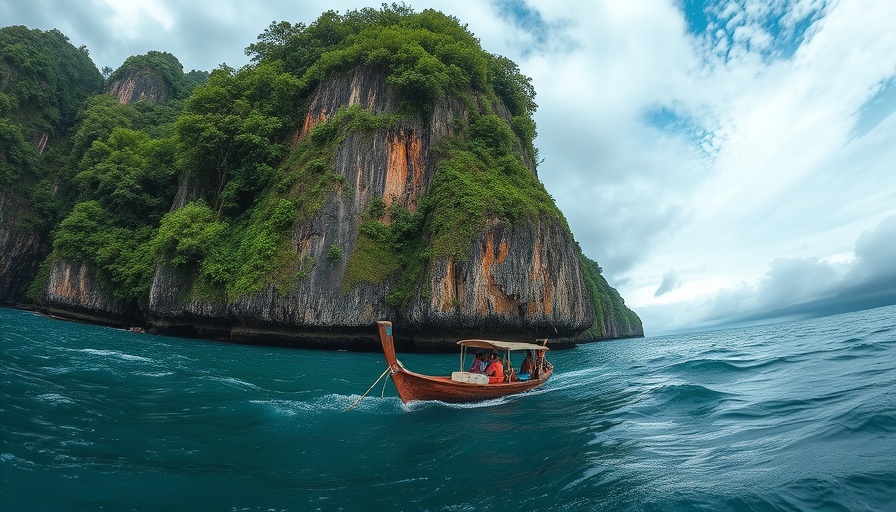
The Nickel Demand Dilemma
As global demand for nickel skyrockets, Palawan, often referred to as the Philippines' last ecological frontier, finds itself at a critical crossroads. The island is under increasing pressure to expand mining operations aimed at meeting the growing needs of green technologies, such as electric vehicle batteries and renewable energy systems. However, with its rich biodiversity and crucial ecosystems at stake, local leaders and environmental advocates are standing firm against these initiatives.
Palawan’s Environmental Legacy at Risk
Home to rare endemic species like the endangered Philippine pangolin and vast ecological resources, Palawan's delicate environment is threatened by mining activities that require substantial land degradation. Grizelda Mayo-Anda from the Environmental Legal Assistance Center (ELAC) emphasizes that mining not only leads to deforestation but also results in severe consequences for local wildlife and ecosystems. The fragile balance of nature in Palawan—comprising nearly half of the country’s old-growth forests and significant portions of its coral reefs—could tip further into decline without stringent protective measures.
Government Actions and Local Sentiment
In response to the environmental concerns surrounding mining, Palawan Governor Dennis Socrates recently enacted a 50-year moratorium on new mining agreements. This bold move signifies a local governmental prioritization of ecological integrity over short-term economic gain. However, some experts, like Mayo-Anda, question the ordinance's longevity, citing potential shifts in political leadership following upcoming elections that could change the current protective stance.
The Global Context of Nickel Mining
The Philippines stands as the world's second-largest producer of nickel, essential in the battery production for electric vehicles, as outlined by the International Energy Agency. As the world pushes towards a green energy transition, the paradox of needing more nickel weighs heavily on countries like the Philippines that also need to safeguard their environmental assets. A study conducted by Conservation International detailed that the ecosystem services of Palawan, valued at $5 billion, vastly outweigh the proposed financial benefits arising from nickel mining, which were estimated at a mere 15 billion pesos (about $262 million).
Community and Church Resistance Against Mining
Beyond governmental measures, grassroots resistance is emerging from local communities and religious groups. Mayo-Anda notes that some farmlands in the region have lost productivity due to mining-related disruptions. The opposition stems from a growing recognition that economic development should not come at the expense of ecological destruction. Various community members are raising their voices, arguing that the long-term costs of mining outweigh the short-term economic benefits touted by organizations keen to exploit Palawan’s riches.
Future of Palawan: A Balancing Act
As the global demand for nickel increases, Palawan must navigate its path carefully. The transition towards sustainability calls for a re-evaluation of how natural resources are managed. Advocates argue for stringent measures on corporate social responsibility, urging mining companies to respect Indigenous rights and engage in environmentally sound practices.
Perhaps, as the debate continues, Palawan can serve as a blueprint for how regions rich in natural resources can combat unsustainable exploitation. Through conscientious leadership and community engagement, the island can protect its unique ecosystems while pursuing an economic pathway aligned with environmental conservation and sustainability.
Conclusion: The Path Forward
Palawan’s struggle presents a broader conversation about mining, ecological integrity, and sustainable development amid a climate crisis. As we reflect on these challenges, it's essential for individuals and policymakers alike to consider how we can support sustainable practices in our local communities. Embracing eco-friendly living, prioritizing environmental conservation, and advocating for responsible consumption can collectively shape a greener future.
 Add Row
Add Row  Add
Add 



Write A Comment